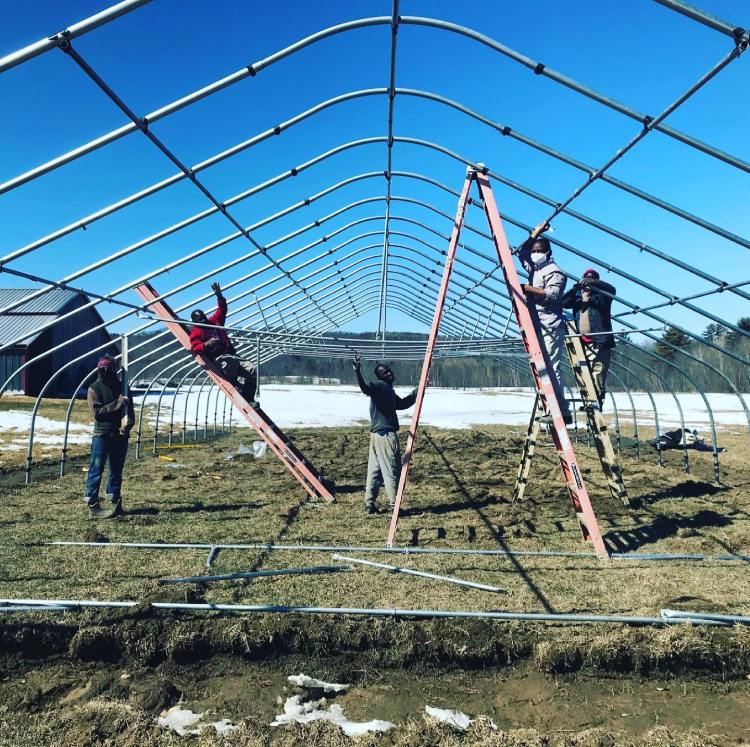While its owners produce delicious and beautiful produce typically found at local farmers’ markets, Liberation Farms is different from every other farm in Maine.
It is a co-operative farm, managed by the Somali Bantu Community Association in Lewiston, and worked by people in over 200 Somali Bantu families.
In Somalia, Bantu farmers are a persecuted ethnic minority and many came to the U.S. as refugees during the civil war in the 1990s. Liberations Farms is “food justice in action,” as the SBCA mission statement describes it. Families who farmed in their old homes are now are able to grow food for themselves. They can also organize into iskashito groups, a Somali term for co-op farming, to sell produce at market.
Until recently, Liberation Farms was not a singular place. Instead, the community association leased small parcels of farmland on a short-term basis from Lisbon to Yarmouth. Access to land never felt secure, plus the community association and farmers couldn’t make infrastructure investments.
As 2020 and the COVID-19 pandemic began, farm managers were focused on distributing emergency food and protective equipment and translating public health resources. Then, a long-awaited opportunity came up.
More than 100 acres in Wales were for sale and in just a few months, the community association was able to raise over $360,000 from local and national donors to buy it. Liberation Farms’ new home is called Little Jubba Central Maine Agrarian Commons and it is leased on 99-year terms from the Agrarian Trust, which facilitated the acquisition.
Liberation Farms had another reason to celebrate in 2020. In December the farm was recognized with the Food Sovereignty Prize, an international award from the U.S. Food Sovereignty Alliance. In announcing the award, USFSA member Lisa Griffith said, “As COVID-19 spread around the globe, it was community efforts – not the industrialized food system – that distributed food and protected farm and food workers.”
Land is “where we can exercise our culture,” said Muhidin Libah, the executive director of the Somali Bantu Community Association, while describing the group’s plans for the farm to The Guardian in February. The association has long programmed anti-racist events in Lewiston, inviting the wider community into their own. But thinking of wedding and Eid celebrations, harvest parties and more, felt hopeful, he said.
“If you have land, it’s not only for farming.”
Comments are not available on this story.
Send questions/comments to the editors.


